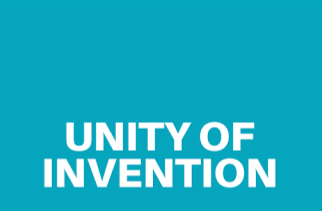Single Inventive Concept to be determined from claims
- IP News Bulletin
- Jul 29, 2022
- 3 min read
According to the Delhi High Court, a reading of the claims must be the basis to determine whether an invention has "unity of the invention" or "plurality of inventions" and whether they constitute a "single inventive concept."
Justice Pratibha M. Singh reviewed the numerous provisions of the Patents Act of 1970 and stated: "The whole specification also describes the procedures, processes, and methods, including the best ways. It's important to remember that the invention itself is defined in the claims, though.
Although such claims must be supported by the information in the specification, a person can still locate the inventionin the claims even if they haven't read the entire specification.
The court was dealing with an appeal that contested the ruling from the Controller of Patents dated March 25, 2022, which rejected the appellant's desire to pursue a divisional application titled "A Medication of a DPP Inhibitor."
The controller stated that the divisional application was rejected because it did not fall under the purview of the parent application and because it made assertions that were similar to those made in the rejected amendment applications.
On November 14, 2008, the applicant submitted a National Phase PCT application for the use of DPP IV inhibitors. There were a total of 1 to 18 claims in the patent specification, including 2 claims with the number 15 (15 and 15A).
The First Examination Report was released on March 24, 2014, and the Applicant revised its claims on October 24, 2014, in response. With the exception of Claims 14, 15, and 15A, all Claims were to be deleted in the aforementioned Amendment No. 1.
The applicant then filed two Forms-13 in 2015–2016, on March 20 and February 18, respectively, asking for two more changes. On September 4, 2017, a divisional application with these two amendments were submitted. The contested order resulted in the claimed application being denied.
Invoking Section 59 of the Patents Act of 1970, the Controller determined that Claims 1 through 11 and Claims 1 through 15 of the modified claims were not within the purview of the initially filed claims and rejected them.
As a result, the Patent Application, which was the parent application, was denied in accordance with section 15 of the Act by order dated January 4, 2018.
The Controller also rejected amendments 2 and 3, however by the time this judgement was made, the applicant had already submitted a divisional application pertaining to those claims.
The Court believed that the divisional application raised an important question about whether or not claims could be included in a divisional application if they were not included in the parent application's claims.
The Court stated that a divisional application must result from a parent application disclosing a "plurality of inventions" in order to qualify as a divisional application under Section 16 of the Act.
This position is made obvious by the statement in Section 16(1) that "the claims of the full specification apply to more than one invention."
It noted that the "plurality of inventions" required by Section 16 of the Act must be explicitly stated in the claims of the original parent application and within the bounds of the parent application's specification.
The Court further stated that in order to determine whether the claims of the entire specification correspond to a "plurality of inventions," as defined by section 16, it is necessary to look at the claims of the parent application.
However, it was emphasised that the divisional application cannot be allowed to be filed simply on the basis of disclosure provided in the specification, in respect of asserted inventions, if the invention is not mentioned in the claims of the parent application.
"It would be against the fundamental principle of patent law—"what is not asserted is disclaimed"—if applicants were allowed to submit such divisional applications based solely on the information disclosed in the entire specification. Similarly Section 59 makes it clear that revisions outside the purview of the specification and claims are not permitted" It said.
With the aforementioned remarks, the Court dismissed the appeal as wholly without merit and ordered the applicant to pay a cost of Rs. 50,000 within four weeks.
The Court stated that, of the aforementioned sum, the Counsel shall receive Rs. 25,000 for both the Respondents and the rest Rs. 25,000 The DHCBA shall get for Pandemic Relief fund.
"The aforementioned sum shall only be used for dissemination to attorneys and their families who have died during pandemic and Hon. Secretary, Delhi High Court Bar Association to verify receipt of the mentioned sum within four weeks", the court ordered.












Comments